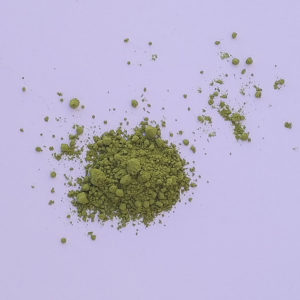Do you know all the Vitamins in green tea?
Here is the list of vitamins in green tea. Japanese green tea is steamed right after the harvest to avoid oxidation. Therefore all the nutrients are kept in leaves. If your green tea becomes brownish it means the tea is already oxidised and have lost most nutrients.

- Vitamin A – Moisturises your skin and strengthens your respiratory and digestive organs
- Vitamin C – eases fatigue and prevents colds & flu. Helps make skin healthier.
- Vitamin E – Anti-aging effects
- Vitamin B1 – Turns sugar into energy
- Vitamin B2 – Enhances body development
- Folic Acid – needed to synthesise and repair DNA. It is also required for healthy blood cells.
When it comes to Matcha green tea powder and Sencha green tea powder, you ingest all these vitamins because some cannot come out in the water by brewing. Thus eating leaves (either it is powder or leaves) is the best way to get all the vitamins that green tea is offering!
Underneath is the nutritional facts of our Sencha green tea powder per 100g. Usually you make tea by adding 1 g per cup of 100-150ml, so you can divide the below amount by 100 to know how much per cup of your tea. Remember you can also add 1 tsp of powder to your oats, porridge, yoghurt and smoothies, in that case you use about 2-3 g each time!
| Sencha green tea powder | |
| Nutritional facts per 100g | |
| Energy | 331 kcal |
| Protein | 24.5 g |
| Moisture | 2.8 g |
| Total fat | 4.7 g |
| Of which saturates | 0.62 g |
| Carbohydrate | 47.7 g |
| Of which sugars | 0 g |
| Sodium | 3.0 mg |
| Tannin | 13 g |
| Fibre | 46.5 g |
| Beta-carotene | 13000 ug |
| Vitamin A | 1100 ug |
| Vitamin E (alpha-tocopherol) | 64.9 mg |
| Vitamin K | 1400 ug |
| Vitamin B1 | 0.36 mg |
| Vitamin B2 | 1.43 mg |
| Vitamin B6 | 0.46 mg |
| Folic acid | 1300 ug |
| Vitamin C | 260 mg |
It is not listed here but there are some minerals such as calcium, magnesium, natrium, calium, iron, zinc, lin and copper.